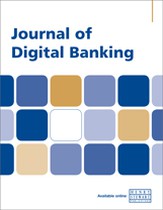Assessment of micro, small and medium enterprises (MSME) financial inclusion initiatives by the commercial banks in Lesotho
Abstract
This diagnostic study sets out to assess micro, small and medium enterprises’ (MSMEs’) financial inclusion initiatives undertaken by commercial banks in Lesotho. Data for this study was collected by administering a semi-structured questionnaire in four commercial banks operating in Lesotho. The feedback was analysed using descriptive statistics. This paper presents how study revealed that all the commercial banks have, to some extent, tailored their financial products/services and non-financial services to the needs of MSMEs. There are, however still gaps related to the scope and intensity of their actions on MSME financial inclusion. Almost all banks lack separate and comprehensive MSME financial inclusion policies. The implication is that the MSME financial inclusion aspects of the Financial Sector Development Strategy (FSDS) will not be implemented successfully in this context. There is a very limited adoption and adaptation of innovative loan products for MSMEs. On the basis of the findings and gaps, it is recommended that banks develop MSME financial inclusion policies. The policies should specify value propositions, organisational structures, products, processes and systems with which to respond to the MSME financial inclusion dimension of FSDS. Banks should adopt innovative MSME loan products such as financial leasing, factoring, commercial agriculture loan products that are particularly suited to the peculiar needs of crop, wool and mohair farmers and fruit growers, among others. The banks should adopt a common standard for defining MSME. The Government and the Central Bank of Lesotho should identify MSME financial inclusion indicators, develop a measurement framework thereof and institutionalise the periodic reporting of MSME financial inclusion information. This requires that banks upgrade their data management systems/management information systems to enable the capturing, storing, reproduction and sharing of accurate, timely and reliable MSME financial inclusion data.
The full article is available to subscribers to the journal.
Author's Biography
Lefeela Joseph Nalane is Section Head, Market Conduct and Consumer Protection, in the Consumer Protection Unit, which is currently housed in the Department of Supervision and Financial Stability at the Central Bank of Lesotho. He is also a part-time lecturer at the Institute of Extra-Mural Studies, National University of Lesotho. He holds a Master’s degree in Economics of International Trade from Heilongjiang University, China. His research interests include consumer protection and market conduct, financial inclusion and remittances. Some of his research work has been published by Africa, Caribbean and Pacific Observatory on Migration.
Lira Peter Sekantsi is a senior analyst and section head of National Payment System Oversight and Risk Management at the Central Bank of Lesotho. He is also a part-time lecturer at the Institute of Extra-Mural Studies, National University of Lesotho. He holds an MA in economics and finance from Leeds University Business School. His research interests include market volatilities, monetary and fiscal policies, and energy economics as well as payment systems. His work has been published in the Review of Economic and Business Studies, Energy Sources, Part B: Economics, Planning and Policy, European Journal of Economics and Management, Journal of Payment Strategy and Systems and International Journal of Sustainable Economy.
